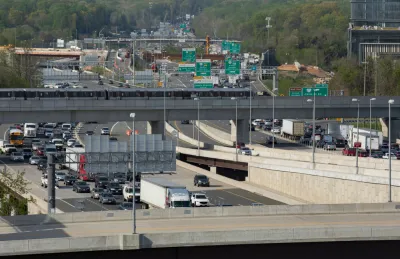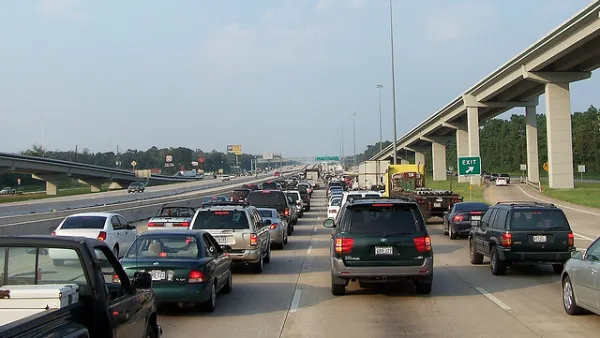A study by David C. Phillips, associate professor of economics at the University of Notre Dame, reveals hiring prejudice against people who would have to commute farther to work, in addition to bias against people with "black sounding" names.

"Low-wage employers in Washington, D.C., discriminate against applicants with longer commutes and those with stereotypically “black” names," reports Denise-Marie Ordway, previewing a study [pdf] forthcoming in the Journal of Human Resources.
"The study finds that when presented with otherwise similar resumes, hiring managers who are trying to fill a position that requires only a high school diploma are less likely to call back applicants who live farther away. Applicants from distant communities get 14 percent fewer callbacks than those living nearby," according to Ordway.
The finding about a preference for hiring people with shorter commutes is separate from the study's other finding: that people with stereotypically black sounding names are also less likely to receive hiring call backs.
The author of the story, David C. Phillips, views these findings as likely to mirror similar realities in other cities. "[Phillips] suggests that policies aimed at moving lower-income adults closer to jobs or better public transportation systems may improve their chances of securing work," according to Ordwell. The article also clearly stands the new study in contrast to a 2007 study by scholars at the National Bureau of Economic Research and Harvard University finding that "public housing residents did not improve their work status after moving to higher-income areas."
Phillips also presents these findings as troubling in light of an increasing super commuters and low-income populations moving farther afield in metropolitan areas, drastically increasing commute trip lengths in the demographic.
The new study also isn't the first to find evidence of bias against super commuters. A Planetizen blog post by Shane Philips from February 2014 details the findings and implications of similar analysis conducted at Xerox Services.
FULL STORY: Some employers discriminate against applicants with longer commutes

Analysis: Cybertruck Fatality Rate Far Exceeds That of Ford Pinto
The Tesla Cybertruck was recalled seven times last year.

National Parks Layoffs Will Cause Communities to Lose Billions
Thousands of essential park workers were laid off this week, just before the busy spring break season.

Retro-silient?: America’s First “Eco-burb,” The Woodlands Turns 50
A master-planned community north of Houston offers lessons on green infrastructure and resilient design, but falls short of its founder’s lofty affordability and walkability goals.

Test News Post 1
This is a summary

Analysis: Cybertruck Fatality Rate Far Exceeds That of Ford Pinto
The Tesla Cybertruck was recalled seven times last year.

Test News Headline 46
Test for the image on the front page.
Urban Design for Planners 1: Software Tools
This six-course series explores essential urban design concepts using open source software and equips planners with the tools they need to participate fully in the urban design process.
Planning for Universal Design
Learn the tools for implementing Universal Design in planning regulations.
EMC Planning Group, Inc.
Planetizen
Planetizen
Mpact (formerly Rail~Volution)
Great Falls Development Authority, Inc.
HUDs Office of Policy Development and Research
NYU Wagner Graduate School of Public Service




























